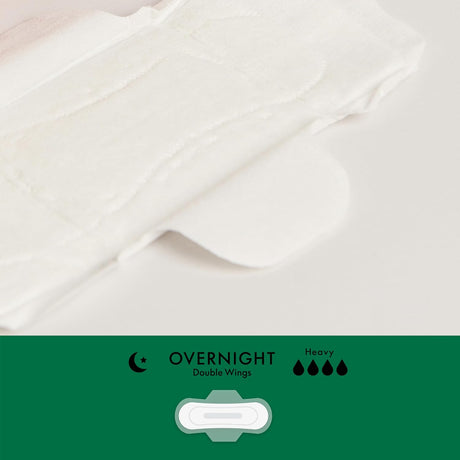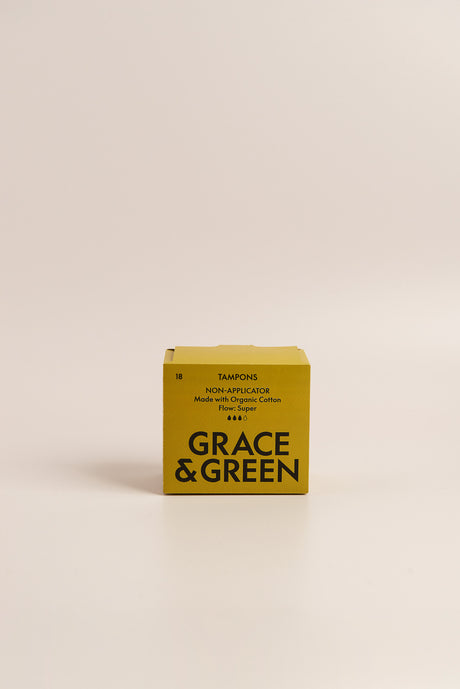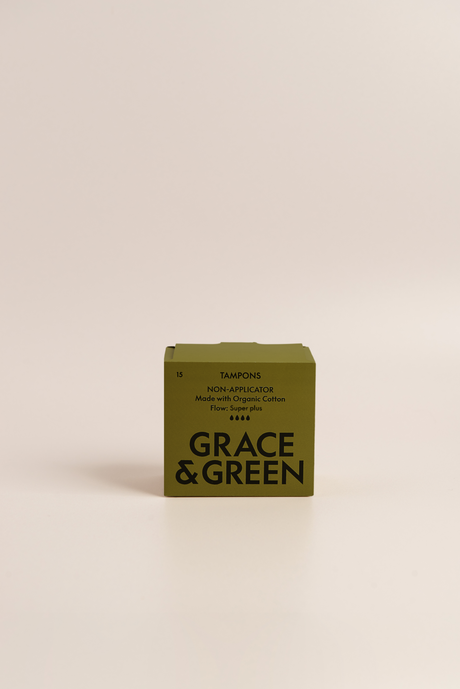Menopause is a hot topic - and we’re not just talking about the flushes many people report. In fact, when people talk about ‘going through the menopause’ they’re actually talking about the perimenopause.
So, what’s the difference?
The perimenopause is when your hormones begin to change but it’s before your periods stop completely. In similar fashion to our periods, the perimenopause can cause a wide range of symptoms but physically and mentally, and will affect everyone differently.
Perimenopause can often be forgotten or pushed aside because most people don’t know very much about it. Perimenopause can also be harder to spot as it can be mistaken for a change in your periods.
What age will perimenopause start? How do I know if I am perimenopausal?
People start perimenopause at different ages. You may notice signs of progression towards menopause, such as irregular periods, sometime in your 40s. However, some people notice changes as early as their mid-30s.
The level of estrogen - the main female hormone - rises and falls unevenly during perimenopause and your menstrual cycles may lengthen or shorten each month. Some of the biggest reported symptoms include hot flushes, sleep problems and vaginal dryness.
As a rule of thumb, once you’ve gone through 12 consecutive months without a menstrual period, you’ve officially reached menopause and the perimenopause period is over.
Will I still be able to orgasm?
First things first, let’s address the elephant in the room.
Yes, people can absolutely still reach an orgasm both during and after menopause. Not being able to is a common misconception associated with menopause, as is experiencing a fulfilling sex life. However, there are some changes you might like to keep in mind.
The hormonal changes your body undergoes during perimenopause and menopause are at the root of many of the myths about your ability to orgasm. As we mentioned, your estrogen levels quickly decline, and as a result your body signals less blood to go to your vagina meaning it can become drier and less sensitive. Instead of seeing this as a problem, revel in the extra time spent on foreplay and make time to explore your body again.
How else will perimenopause affect me?
Throughout the menopausal transition, some subtle - and not-so-subtle - changes in your body may take place.
Some people experiencing perimenopause feel unwell with many reporting feeling nauseous and dizzy. We’re here to tell you this is completely normal and you’re not alone.
There are some known causes for this though. In perimenopause and menopause for example, your blood sugar control can become more erratic. This yo-yoing can very quickly cause nausea.
But with so many different symptoms how can you really test yourself for perimenopause?
Below, we’ve shared the most common signs you’ve begun perimenopause and some tips on how to cope with the change.
Common signs of perimenopause
Hot flushes
One of the most common symptoms - up to 80% of people going through perimenopause experience them. There isn’t much research to explain what causes them but it’s thought they’re related to the hormonal changes that happen to our bodies.
Mood swings
Several studies have shown an increased risk of developing depression during perimenopause. Some people find the changes going on overwhelming so it’s good to be aware that these symptoms are caused by - you guessed it - your hormones. Taking care of yourself, getting good sleep and doing regular exercise is the best treatment.
Decreased libido and vaginal dryness
Low libido can lead to vaginal dryness. So whilst you can still orgasm and enjoy a healthy sex life you might need some extra help with lubrication. A doctor can prescribe a local oestrogen treatment or a pessary that can help. The good news is, because they treat the local area they can have less side effects than hormonal replacement therapy (HRT) which affects the whole body.
Irregular periods
Some people notice their periods changing up to a decade before their actual menopause. To help with the bleeding you can use a hormonal contraceptive such as an IUD to help.
Sleeplessness and fatigue
Many people say they have trouble sleeping as they enter perimenopause, particularly during their period. Doing physical activity, meditations and having a solid bedtime routine can help.
Is the perimenopause diet a real thing?
Simply put, yes. One way to offset the impact of some of the changes you experience is through diet. If adopted early enough, the right tweaks will not only help to ease immediate symptoms, but could also help make the transition less traumatic.
Researchers have found links between plant-based diets and fewer hot flashes as well as improved quality of life in terms of physical, mental and sexual health. Whilst going fully plant-based might not be for you, getting beneficial nutrients and fibre as well as adding diversity into your diet can help you through perimenopause and beyond.
Adding plenty of fibre, protein and essential vitamins and minerals to your diet can also prove very helpful. Fibre provides fuel for your gut bacteria, and research shows that fibre can also help reduce feelings of depression and lower the risk of ovarian cancer.
During perimenopause you may see a decrease in your lean muscle mass and find it easier to gain weight. Increasing your daily protein intake can help to manage your appetite but may also help reduce body fat, improve cholesterol and help maintain muscle mass.
The risk of osteoporosis - which can cause weak and brittle bones - increases with age. Perimenopause also makes you particularly susceptible to certain vitamin and mineral deficiencies. Foods rich in calcium and vitamin D are good for your immune system and improve bone and muscle health.





















